
10 weird traffic laws you don't know you're breaking
This story originally appeared on CheapInsurance.com and was produced and distributed in partnership with Stacker Studio.
10 weird traffic laws you don't know you're breaking
Anyone who's prepared for a driving test is well aware of the extensive rules to memorize and abide by, from the meaning of various traffic signs to who has the right of way in a given situation and all manner of guidelines in between. Yet, buried amid the mass of codes and bylaws, there may still be quite a few traffic laws you aren't aware of—and a few you regularly break.
These rules may be on the books, but some are so outdated that it would be silly even to enforce them. Nevertheless, they remain in existence as mostly archaic reminders of when traffic laws revolved more around horse-drawn buggies than high-horsepower vehicles.
Some laws bar you from participating in activities (like driving a car) on Sundays in places like Colorado, Indiana, and Maine. These "blue laws" date as far back as 13th-century England and were brought over during Colonial times as a means to force adherence to Puritan behavior. The nonsensical nature of some of these rules is a great reminder of just how much legislation is a product of society's beliefs, warranted or not. In some cases, like many below, the result is laughable. In others, such as in "Black codes," a Reconstruction-era invention meant to make it nearly impossible for Black people to live a legal life after slavery, it is downright unjust.
This list of laws stretches the boundaries of weird to include everything from the absurd to the questionable to the downright confusing. In order to make the list, CheapInsurance.com used data tracked by Nationwide. Scroll through to see if your state happens to be one of the many on the list of 10 weird traffic laws you may not know you're breaking.
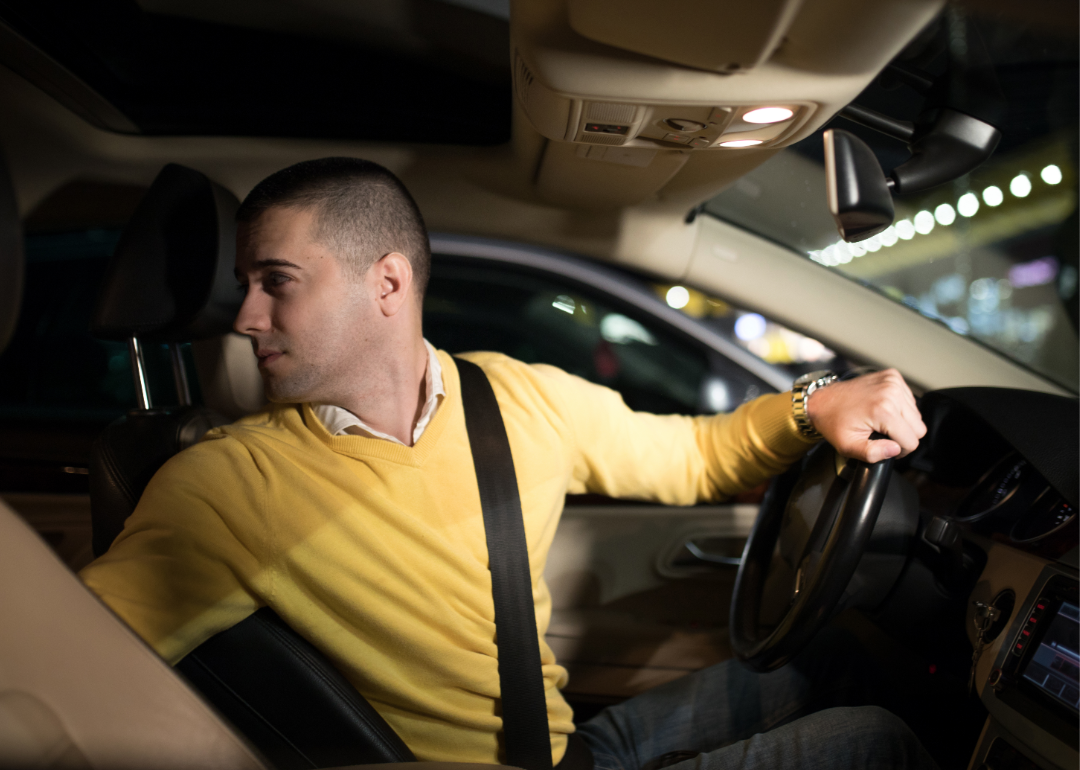
Driving in reverse on a public road
Arizona has an official "you can't drive backward in the middle of the road" law. Beyond its obviousness, the law's wording adds to its strangeness.
According to traffic code 28-891, section A, the driver of a vehicle shall not back the vehicle unless the movement can be made with "reasonable safety and without interfering with other traffic," which makes it seem like it's telling you never to reverse. At all. Clearly not the case, but it makes it a bit hilarious.
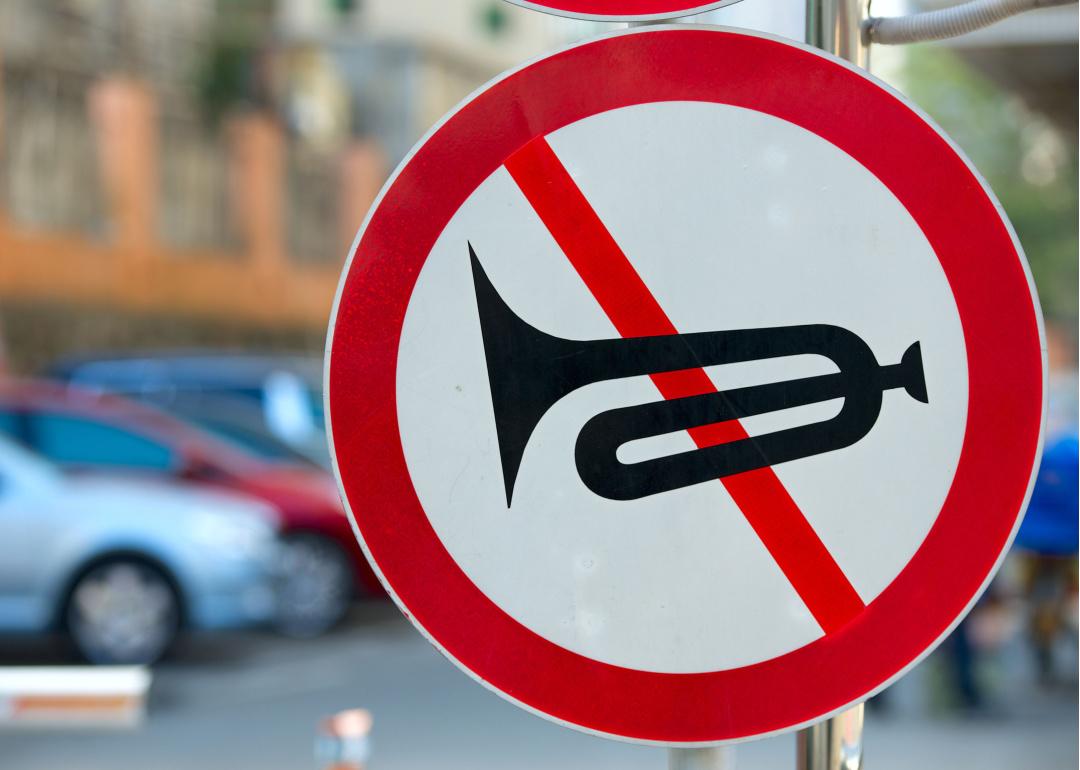
Honking your horn near a restaurant
This is one of those rules that makes you wonder what high-powered person got honked at while waiting in a fast food line. A law in Little Rock, Arkansas, says no one can honk their horn at a restaurant "that serves cold beverages or sandwiches" after 9 p.m.
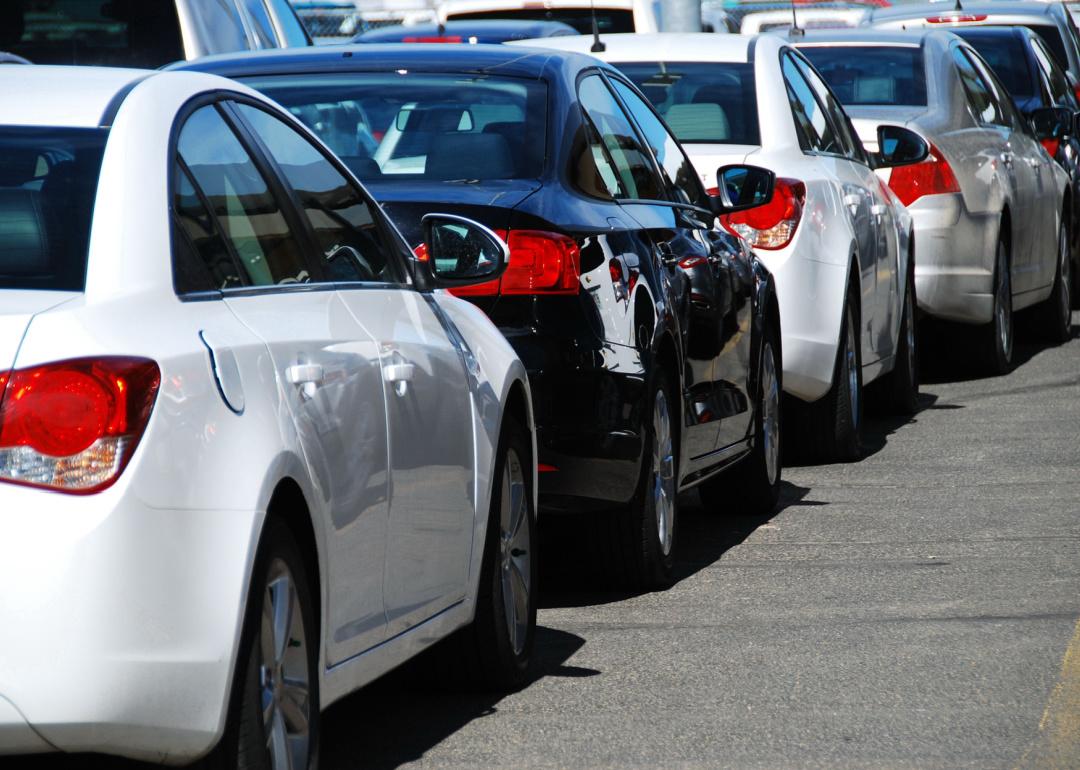
Driving a black car on a Sunday
Thousands of Denverites are likely breaking the every Sunday.
In fact, according to a survey by the Denver Post, it could be upwards of 21.6%, considering the city has a law on the books that says it is illegal to drive a black car on Sundays—though why, or what for, or what purpose there would be to making this a law, we're not clear.
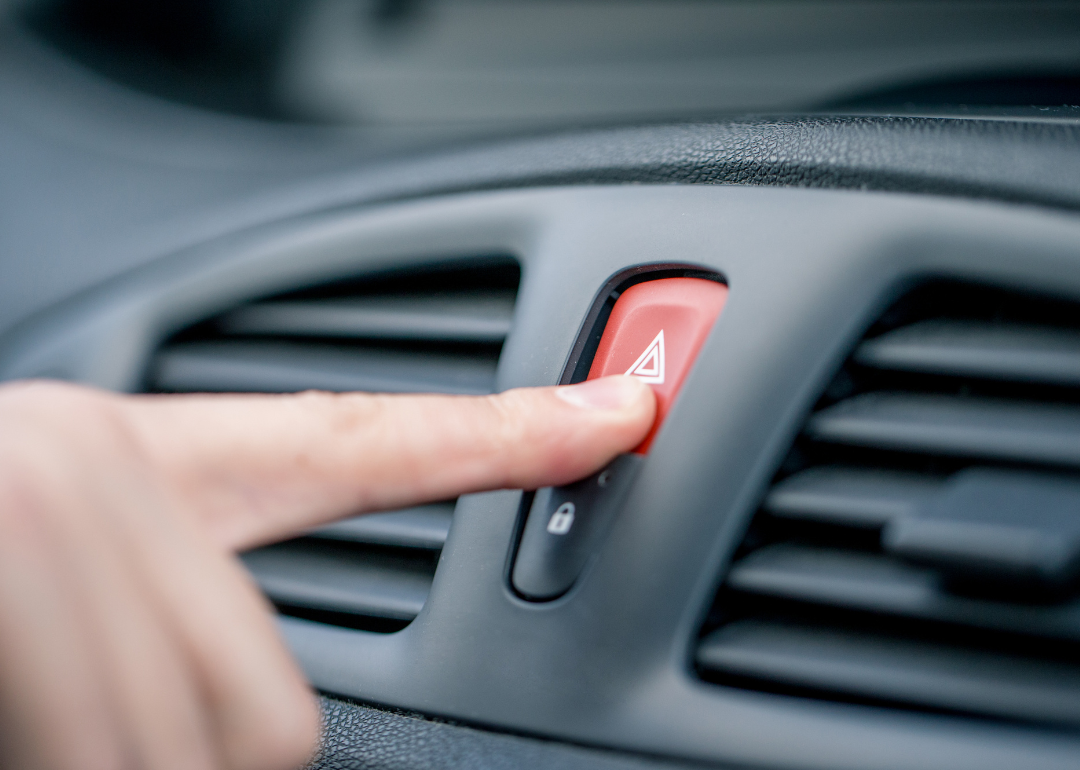
Driving with hazard lights on
It's illegal to use your hazard lights while driving in 30 states, including Hawaii. There is some logic in that: Using hazard lights while in motion can cause confusion, especially for motorists used to anticipating a car's movements by looking at turn lights.
However, not turning on your hazard lights when you need to warn others that your car could be a danger might be the biggest hazard.
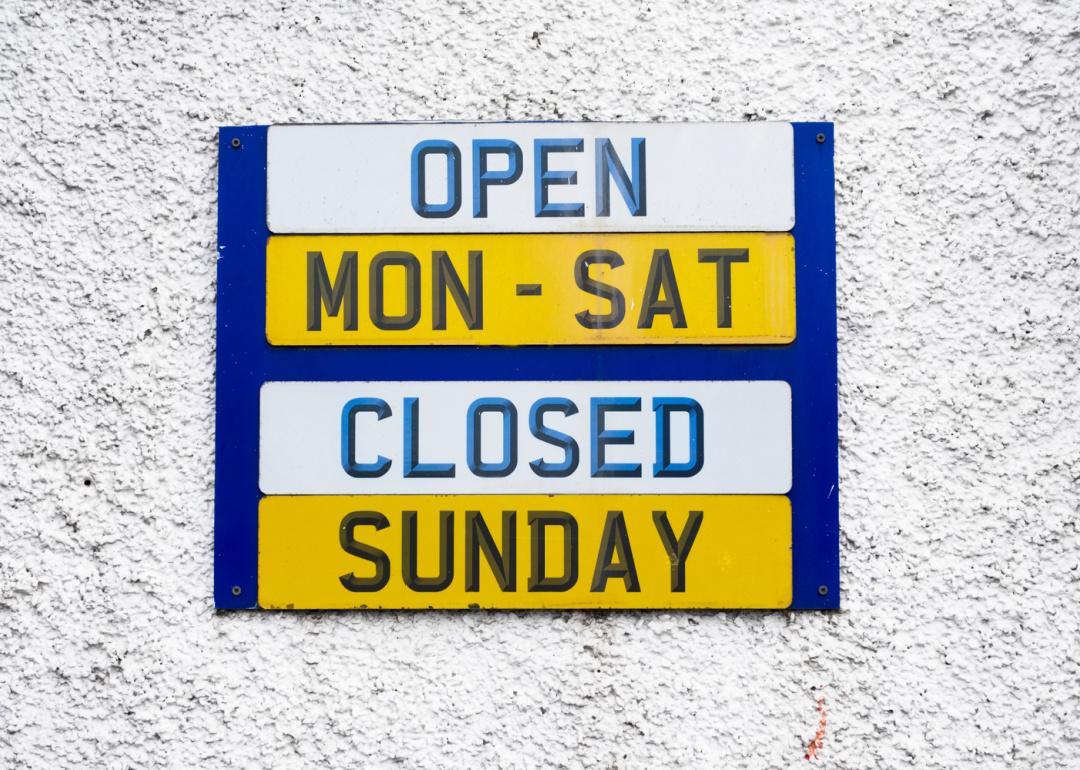
Buying or selling cars on a Sunday
In Indiana, Maine, and a handful of other states, there is a law on the books that prohibits cars from being bought or sold on a Sunday. These are "blue laws," a group of laws that enacted in Colonial New England that prohibited a variety of activities on Sunday in order to promote religious piety.
While most of the laws are gone, some of them have still been kept and carried over, either through negligence or secret religious zealotry. Who knows?
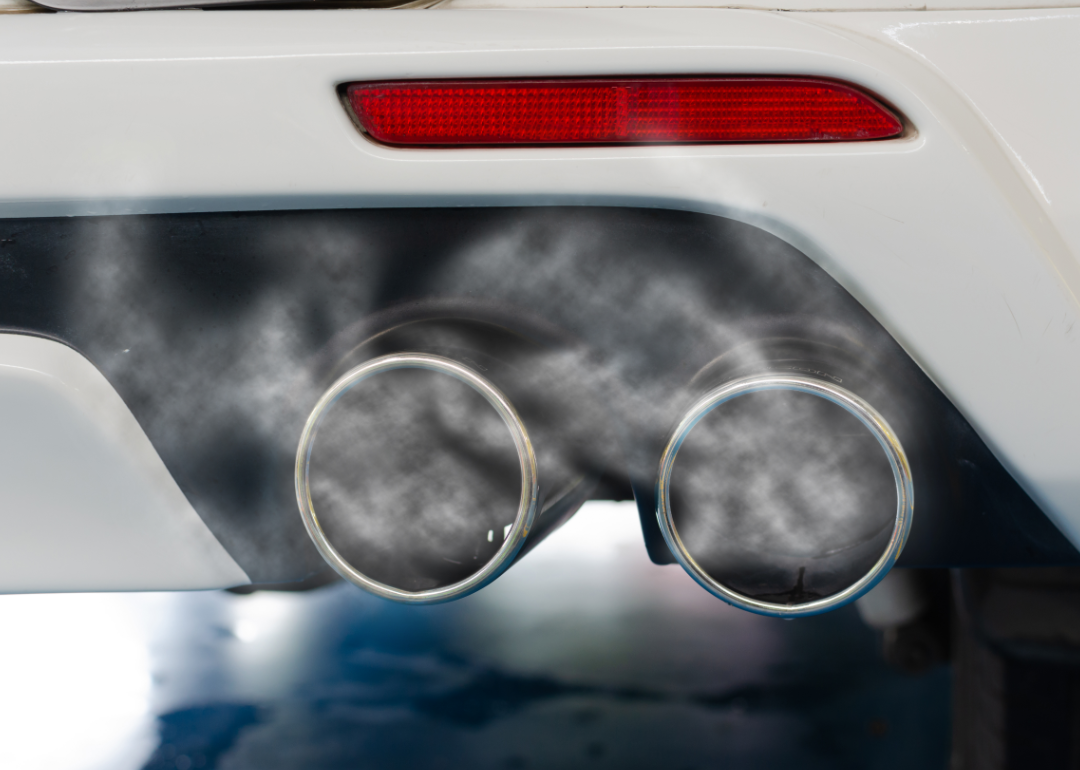
Inhaling vehicular fumes
In New Hampshire, it is illegal to inhale vehicular fumes from an exhaust pipe for the express purpose of intoxication. There are fairly obvious (and dangerous) side effects to doing so. The state's law applies to the intentional inhalation of fumes of any substance for the purpose of inebriation, barring the use of anesthesia in a medical setting.
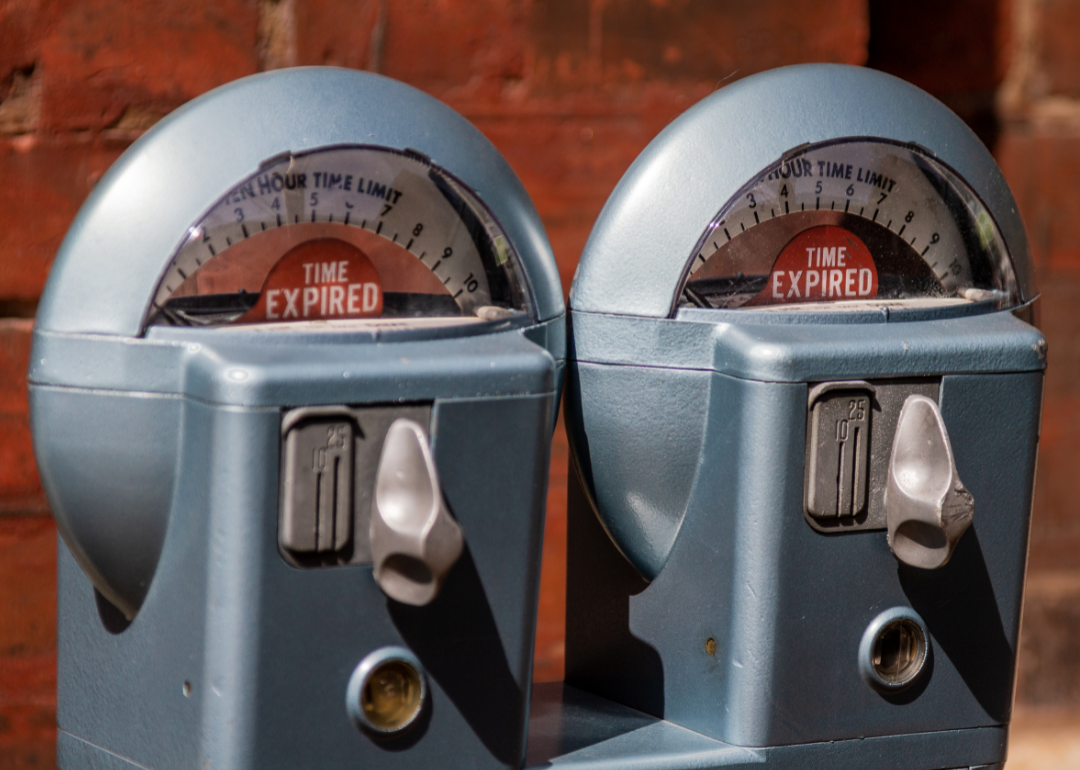
Installation and use of parking meters
In North Dakota, parking is free. That's because parking meters are prohibited, thanks to a farmer named Howard Henry.
In the 1940s, Henry was about to put a nickel for parking when he got distracted by a friend. He went home with a ticket. Henry was so upset that he collected the signatures he needed to ban the meters. While legislation overturned the law in 1951, it went back into effect with Henry's help, where it stays to this day.
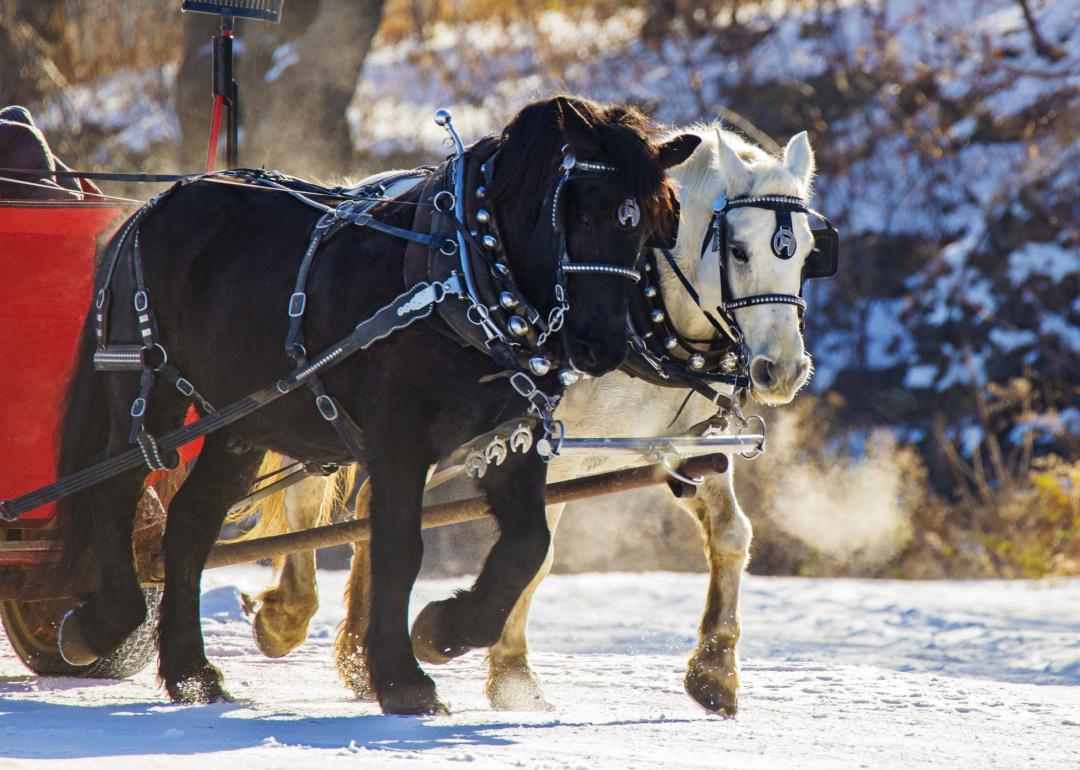
Driving with fewer than three sleigh bells
Driving with a horse-drawn sleigh In Massachusetts is illegal unless your bell count is correct.
Sometimes the holiday spirit takes over, and you have the desire to take your horse-drawn sleigh out for a spin. In Massachusetts, the law wants to remind you that taking such a vehicle on the road is illegal unless there are at least three sleigh bells attached to the harness. Because if you're going to jingle those bells, Massachusetts wants you to jingle them all the way.
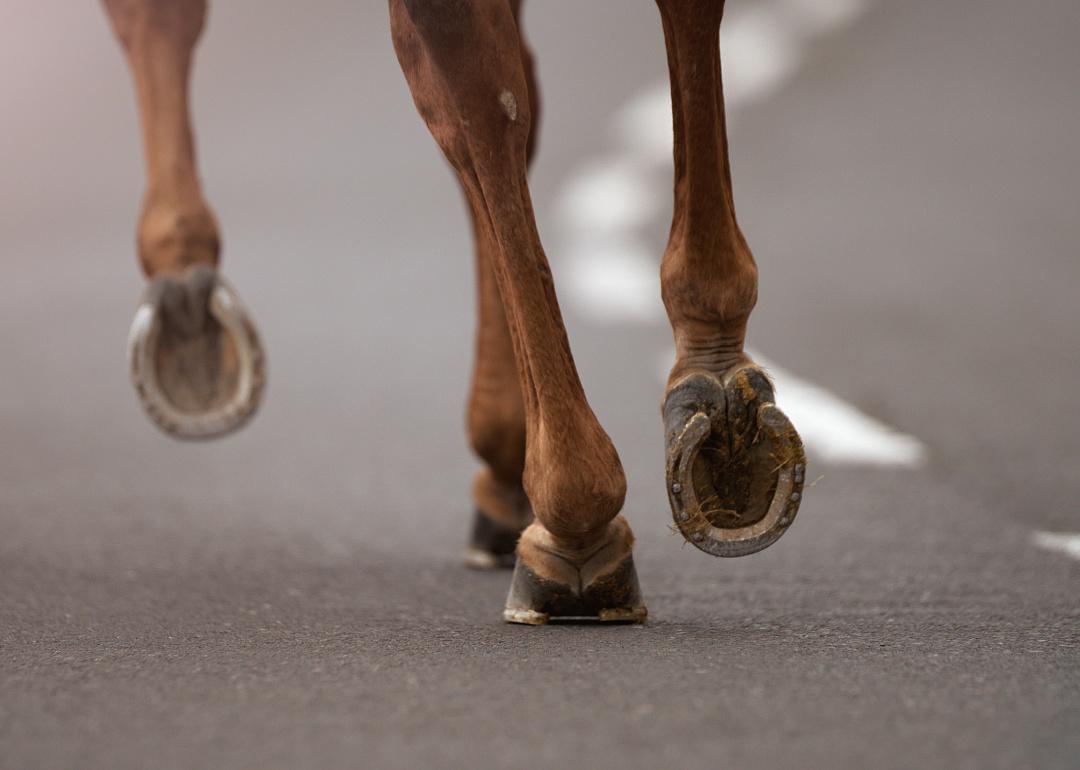
Riding a horse on the highway
Vehicles drawn by the equine variety seem to be a theme on our list. Such is the case for Rhode Island, where it's unlawful to ride a horse on a highway to race or to see how fast it can gallop. So don't try to test out whether or not your "horsepower" is up to standard for the roads.
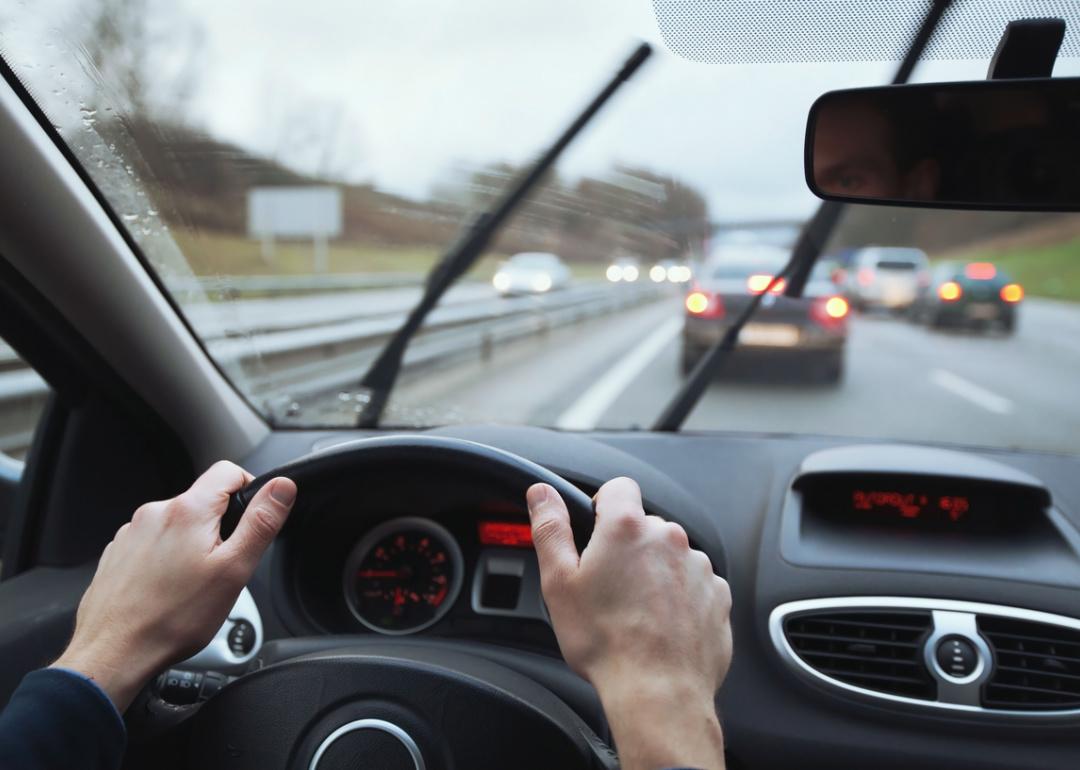
Windshield wiper requirements
There are certain things you have to have in order to register your vehicle, and some seem a bit more severe than others. For example, in Texas, it is required for any driver to have a pair of working windshield wipers on their vehicle before they can legally register it. Ironically, there is no law requiring the driver to have a working windshield, so it would be an interesting legal debate to see how that one played out.



